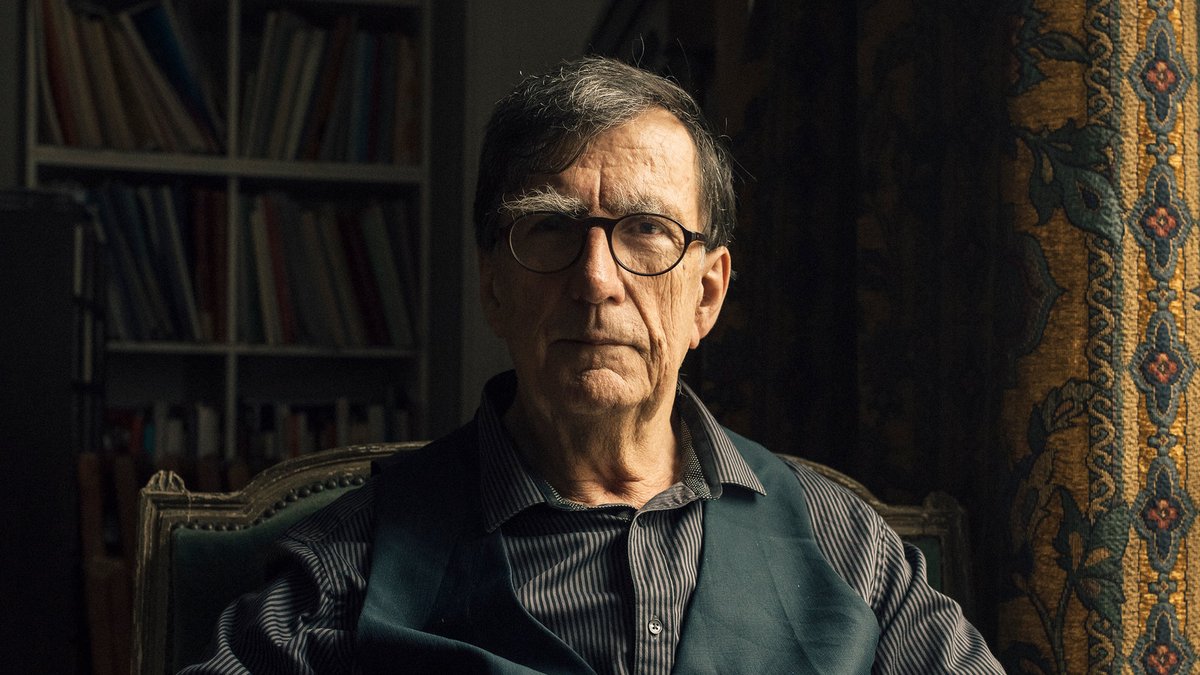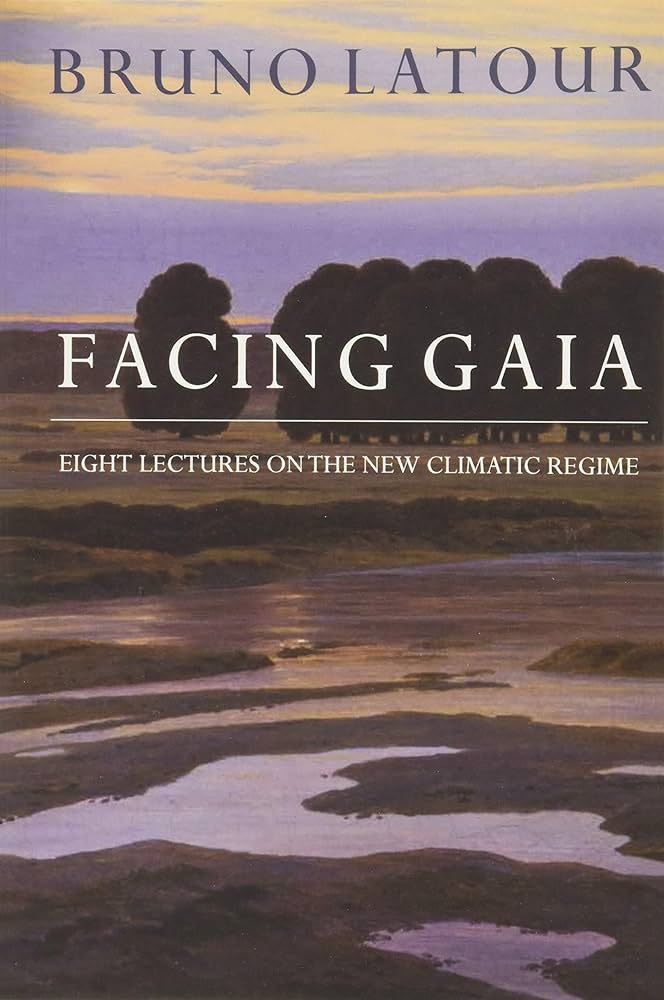
Research Fellow, University of Oxford: theology, philosophy, ethics, politics, environmental humanities. Associate Director @LSRIOxford. Anglican Priest.
2 subscribers
How to get URL link on X (Twitter) App


 2/ As he doe throughout his work, Voegelin deploys what he calls an 'Aristotelian method' to put before our eyes a ‘historical phenomenon’, only then proceeding to analysis and definition (p.61).
2/ As he doe throughout his work, Voegelin deploys what he calls an 'Aristotelian method' to put before our eyes a ‘historical phenomenon’, only then proceeding to analysis and definition (p.61). 

 2. For Deleuze avers that all that is repeated is Being itself, taken as univocal, such that for him there is only a single immanent totality (albeit in ceaseless flux).
2. For Deleuze avers that all that is repeated is Being itself, taken as univocal, such that for him there is only a single immanent totality (albeit in ceaseless flux).


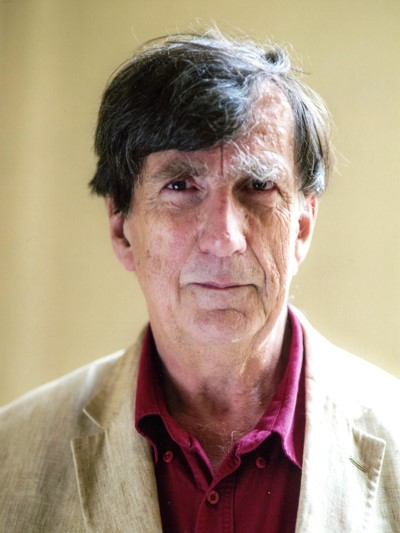 2. Latour recounts visits to specialists in hospital. Procedures, tests and analyses were gathered to generate a medicalised database of his personal health history: it felt to him that these were establishing "a map based rather superficially on the territory of a body".
2. Latour recounts visits to specialists in hospital. Procedures, tests and analyses were gathered to generate a medicalised database of his personal health history: it felt to him that these were establishing "a map based rather superficially on the territory of a body". 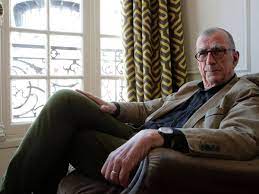

 2. This can be contrasted with the understanding of "borders" advanced in Catholic Social Teaching. In Fratelli Tutti, for example, Francis makes clear that the future is not tied to the nation-state per se, and certainly not to any form of nationalism (which is never Christian).
2. This can be contrasted with the understanding of "borders" advanced in Catholic Social Teaching. In Fratelli Tutti, for example, Francis makes clear that the future is not tied to the nation-state per se, and certainly not to any form of nationalism (which is never Christian). 

 2. The "common good", as explored in the Catholic Social Teaching tradition, is closely aligned to a definition of human dignity that leads to arguments for human rights and solidarity with the most vulnerable human communities in our world.
2. The "common good", as explored in the Catholic Social Teaching tradition, is closely aligned to a definition of human dignity that leads to arguments for human rights and solidarity with the most vulnerable human communities in our world. 


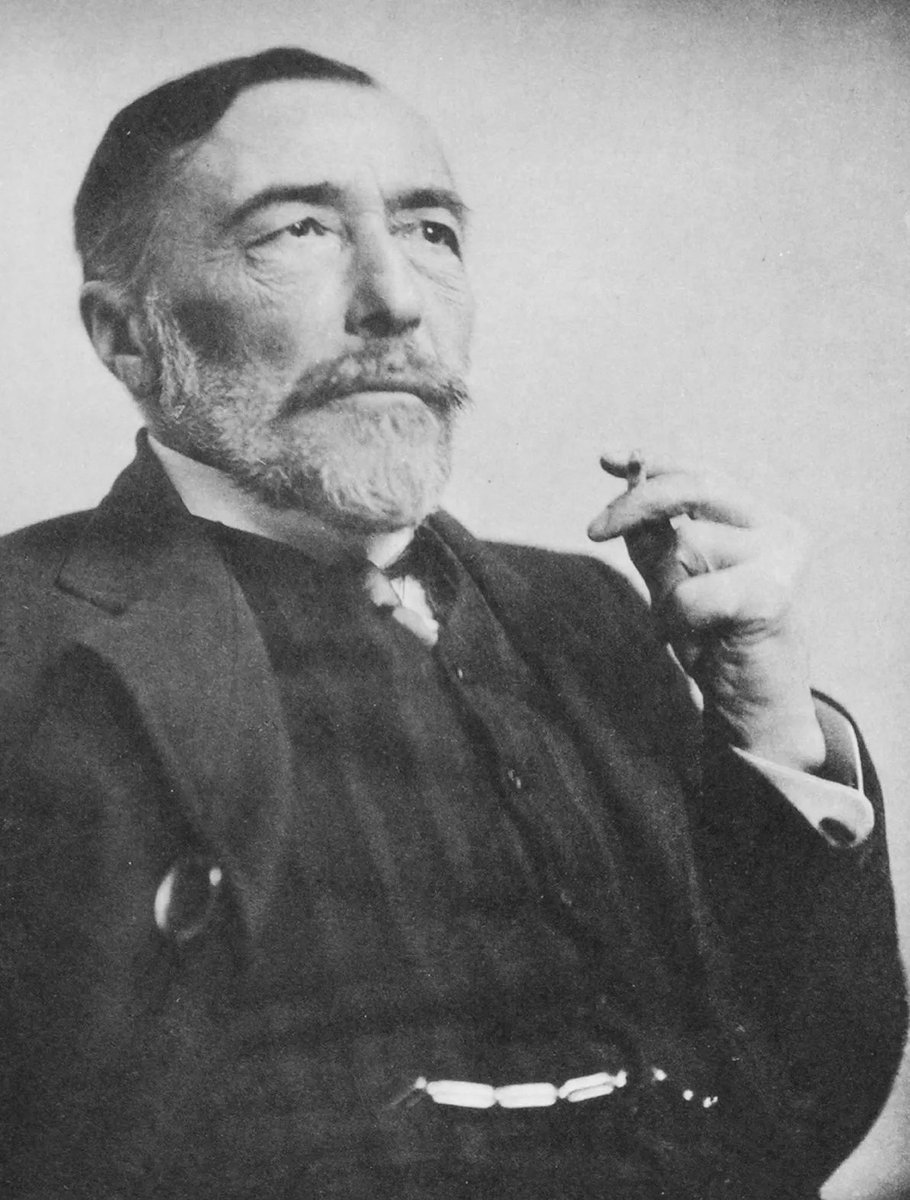 2. In this story, Conrad draws on his own experience as commander of the Otago in 1888. The genesis for the story itself dates to 1899, when Conrad had in mind a story titled “First Command,” a possible follow-up to “Youth” (1898).
2. In this story, Conrad draws on his own experience as commander of the Otago in 1888. The genesis for the story itself dates to 1899, when Conrad had in mind a story titled “First Command,” a possible follow-up to “Youth” (1898). 



 2. Why can Girard speak diagnostically on this topic? On the basis of his theory about human desire. For Girard, desire is never a function of an autonomous subject. Rather, it is generated by a pre-conscious psychological formatting that he calls ‘mimetic’.
2. Why can Girard speak diagnostically on this topic? On the basis of his theory about human desire. For Girard, desire is never a function of an autonomous subject. Rather, it is generated by a pre-conscious psychological formatting that he calls ‘mimetic’. 

 2. Dorrien argues for democratic socialism as “the ethical passion for social justice and radical democratic community […] conceiving democracy in terms of character of relationships in a society, not mere voting rights” (p.4).
2. Dorrien argues for democratic socialism as “the ethical passion for social justice and radical democratic community […] conceiving democracy in terms of character of relationships in a society, not mere voting rights” (p.4). 

 2. Is there a risk that the term itself - including all its historical and lexical baggage - risks re-baptising a sense of exceptionalism and hegemony that (I know) at heart you seek to critique and overturn?
2. Is there a risk that the term itself - including all its historical and lexical baggage - risks re-baptising a sense of exceptionalism and hegemony that (I know) at heart you seek to critique and overturn?

 2. In this text Girard argues that world history is an admixture of progress and regression. And that we must live humbly in the midst of, not as "masters" of this trajectory. The metaxy is key here.
2. In this text Girard argues that world history is an admixture of progress and regression. And that we must live humbly in the midst of, not as "masters" of this trajectory. The metaxy is key here. 





 2. Fundamental to secularism is its claim to provide a neutral or non-aligned space within which human existence can be creatively and independently pursued. Latour challenges this claim, proposing that secularism must be understood as itself having the form of an ideology.
2. Fundamental to secularism is its claim to provide a neutral or non-aligned space within which human existence can be creatively and independently pursued. Latour challenges this claim, proposing that secularism must be understood as itself having the form of an ideology. 

 2. With this in mind, it was a delight to host a conversation earlier this week on "agro-ecology" as part of the new 'Integral Ecology Dialogues' series at @LSRIOxford @CampionOxf. With scholars and practitioners Norman Wirzba, Jenny Howell, Matthew Whelan and Austen Ivereigh.
2. With this in mind, it was a delight to host a conversation earlier this week on "agro-ecology" as part of the new 'Integral Ecology Dialogues' series at @LSRIOxford @CampionOxf. With scholars and practitioners Norman Wirzba, Jenny Howell, Matthew Whelan and Austen Ivereigh. 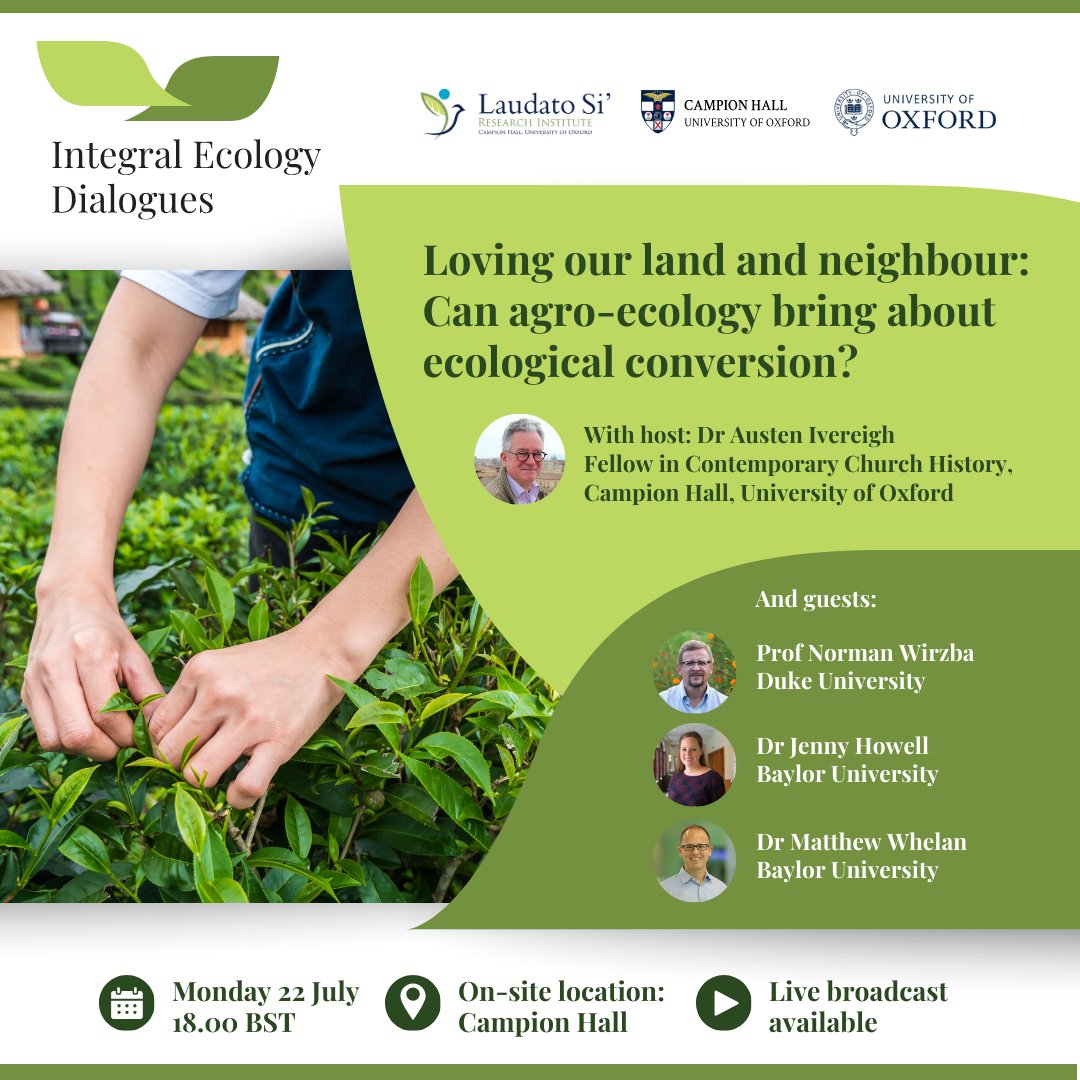

 2. Voegelin’s philosophy of consciousness enables him to analyse "symbolizations", that is, how humans have depicted their encounters with “the ground of being” over time. These symbols change and evolve of course, and may be more of less faithful to the original experience.
2. Voegelin’s philosophy of consciousness enables him to analyse "symbolizations", that is, how humans have depicted their encounters with “the ground of being” over time. These symbols change and evolve of course, and may be more of less faithful to the original experience. 

 2. Over the course of three orbits, these men gazed down at the lunar surface through their capsule’s tiny windows as they carried out the observations prescribed for almost every minute of this tightly-planned and tightly-controlled mission.
2. Over the course of three orbits, these men gazed down at the lunar surface through their capsule’s tiny windows as they carried out the observations prescribed for almost every minute of this tightly-planned and tightly-controlled mission. 


 2. Nevertheless, the narratival machinery is extraordinary, the plot beginning 'in medias res' and subsequently revealing itself through a series of flashbacks and metadiegetic retellings.
2. Nevertheless, the narratival machinery is extraordinary, the plot beginning 'in medias res' and subsequently revealing itself through a series of flashbacks and metadiegetic retellings. 



 2. In his very late work, "Religion: Re-reading what is Bound Together", for example, Serres seeks to go beyond historicist approaches that seek to undermine religion by appeal to "the mere facts" of history and by noting the problem of transmission of these into the present.
2. In his very late work, "Religion: Re-reading what is Bound Together", for example, Serres seeks to go beyond historicist approaches that seek to undermine religion by appeal to "the mere facts" of history and by noting the problem of transmission of these into the present. 

 2. For Serres the power of religion is thus to be a connector. Religion indexes at the same time to “the universal and the singular, the global and the local". It is "an infinite immensity and a finite pinpoint, between the virtual and the real, the absent and the present” (p.41)
2. For Serres the power of religion is thus to be a connector. Religion indexes at the same time to “the universal and the singular, the global and the local". It is "an infinite immensity and a finite pinpoint, between the virtual and the real, the absent and the present” (p.41) 
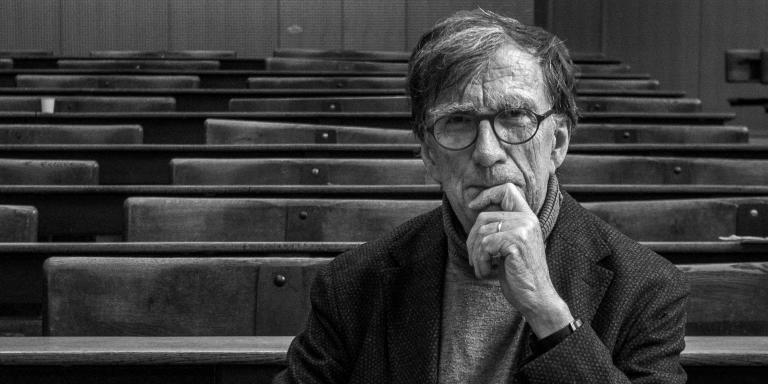
 2/ What is the value of the Gaia concept for Latour?
2/ What is the value of the Gaia concept for Latour?